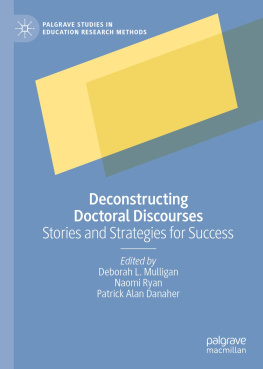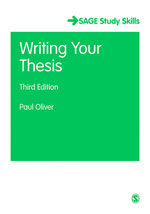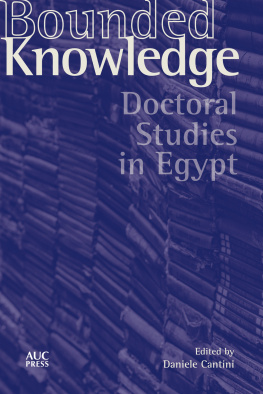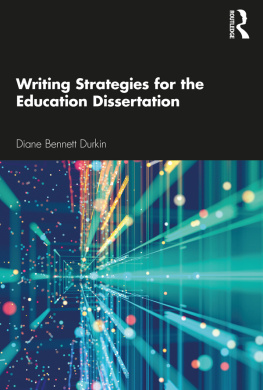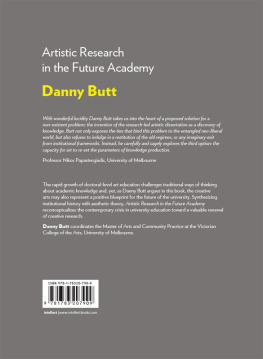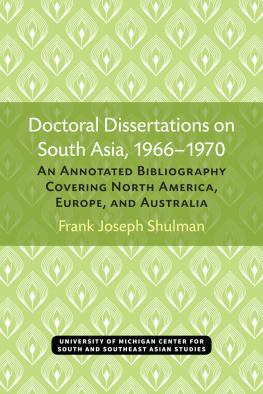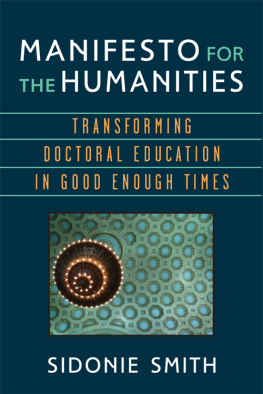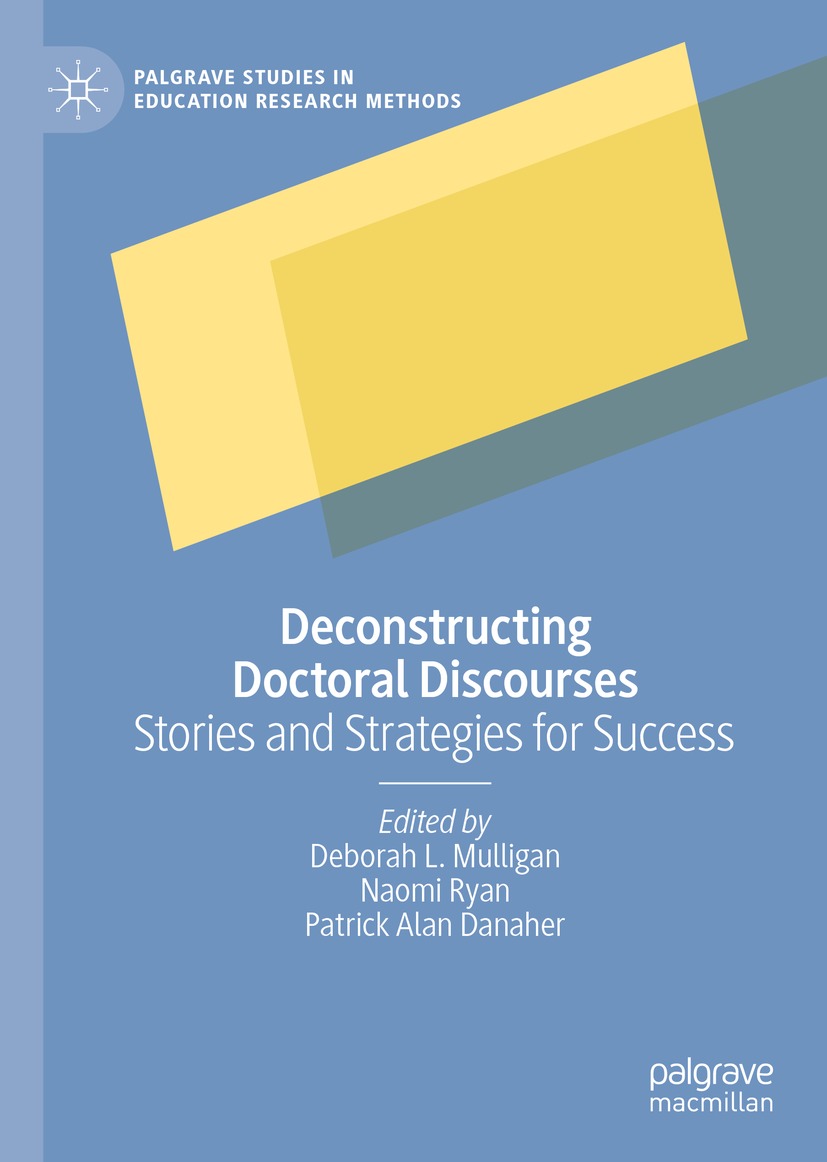In a very insightful exhortation to social sciences researchers, John Law (2011) wrote:
Mind the gaps. Dont fear them. Mind them. Recollect them. Attend to them. Care for them. Cultivate them. Treat them for what they are: places in between; places of unknown potential. Okay, I agree, theyre uneasy places too. (p. 5)
This fascinating book embodies the sentiment of this exhortation. The doctoral research project is intrinsically a place of unknown potential, yet that potential has to be identified, articulated, evaluated and recognised as a scholarly contribution. This much is, broadly, a certainty. And perhaps that is exactly where any certainty ends. Deconstructing Doctoral Discourses comes to grips, thoroughly, imaginatively and fearlessly, with the very concept of potential in the real world of doctoral research. Gaps are found, attended to, minded. Unease features, prominently, and so do the places of discomfortand the learnings to which they give rise.
Deconstructing Doctoral Discourses is an extraordinarily rich collection of the places experienced by doctoral researchers who feature on its pages. Some of them have long since qualified, and gone on to be mentors and advisers to others; some are just emerging from doctoral study; and some are still in the thick of it. The multiplicity of these authorial and editorial voices is intrinsic to the deconstruction that runs across the volume, bringing to its pages a wide range of perspectives, experience and provocations. Its not a how to book for the doctoral student, although there is useful advice and reflection in every chapter. The scope and breadth of its deconstructions , I have to confess, were more profound than I had anticipated: they spoke to me of gaps, knowing and not knowing across my own career experiencenot only as a doctoral student, but also as a supervisor, mentor , examinerand, indeed, friend/tea-maker for others doing their doctoral work.
The volume is divided into three parts. Each part is prefaced by a brief editorial introduction that picks up on key themes for the part, and specific highlights from each chapter. There are no gaps here in modelling coherence or contribution!
After the editors opening chapter Disrupting Dominant Discourses and Celebrating Counternarratives: Sustaining Success for Doctoral Students and Supervisors, an introduction to the doctorate is the first part. It comprises two chapters that address the matter of identifying the research gap (by Geoff Danaher, Mike Danaher and Patrick Alan Danaher) and the complexities of securing human ethics approval (by Suzanne Meibusch). The second part focuses on the body of the doctorate and comprises 14 chapters that are divided into four subsections: Forming and Sustaining Relationships (with chapters by Jenni L. Harding, Boni Hamilton and Stacy Loyd; Gina Lynne Peyton, David Brian Ross, Vanaja Nethi, Melissa Tara Sasso and Lucas A. DeWitt; and Carolin Mller); Operationalising the Study (with chapters by Camille Thomas; and Bronte van der Horne and Jon Whitty; Writing the Thesis (with chapters by Belinda Cash; Anup Shrestha; Natalia Kovalyova; Dawne Fahey, Esther Fitzpatrick and Alys Mendus; and Deborah L. Mulligan); and Developing and Articulating Doctoral Identities (with chapters by Paola Eiras and Henk Huijser; Gina Curr; Jeanette Hannaford; and B. Vinod Kumar). The third part, concluding the doctorate, comprises two chapters, focusing on differing protocols around the examination of the thesis and the viva (Fiona Charlton and Peter Smith) and an interrogation of postdoctoral researcher positionality (Daniel Ferreira and Robin Throne). The final, concluding chapter is a broader perspective that rounds the volume off with reflection on the past, present and potential future understandings that this book has explored (Deborah L. Mulligan and Naomi Ryan).

